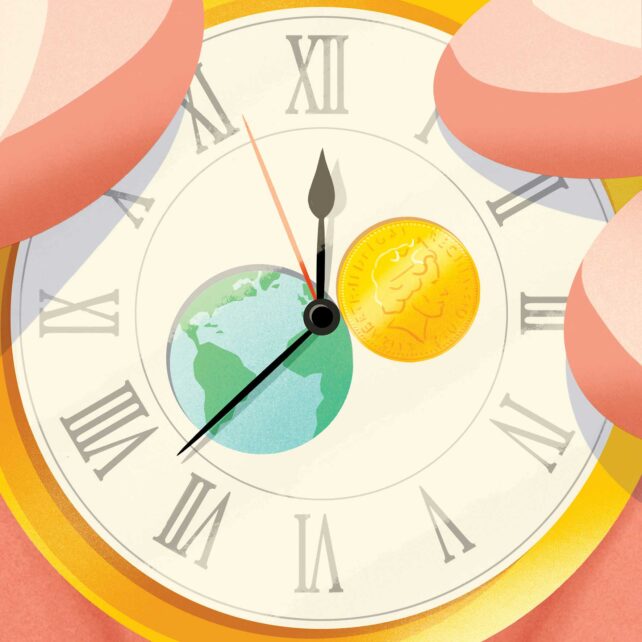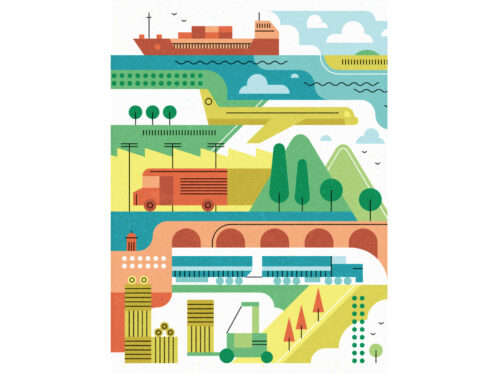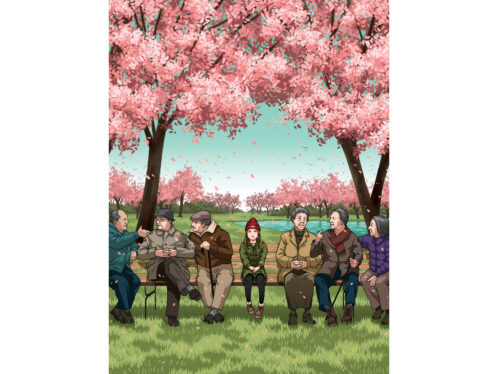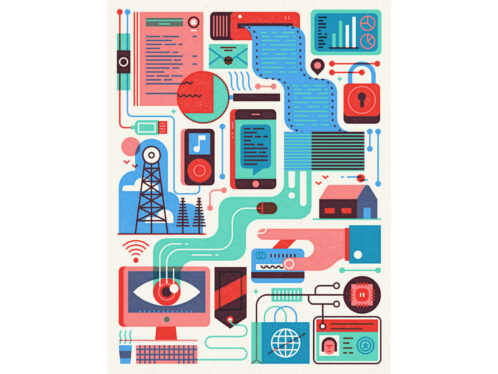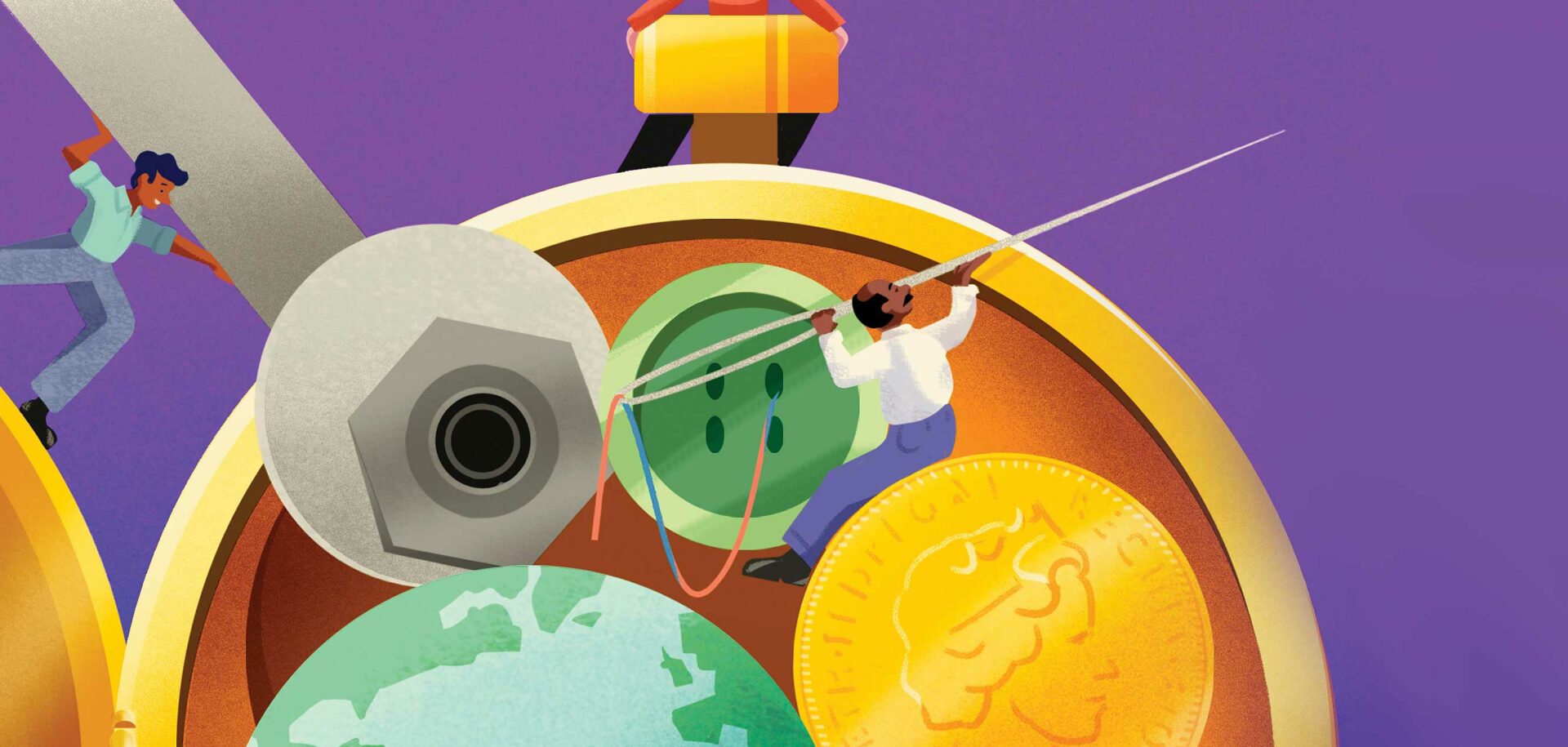
As good as new
Going circular – reusing, remanufacturing and recycling – could mean massive gains for the economy and the planet.
Proponents say it could be the solution to the biggest challenges facing the planet: population growth, dwindling natural resources and climate change. But it’s going to require the involvement of everyone.
“We are at a stage where we have to do this because resources are becoming more scarce, and we have impacted the planet on a massive scale,” says Dr Julia Stegemann, a professor of environmental engineering at University College London and joint initiator of the UCL Circular Economy Laboratory. “We are reaching a point where there’s no turning back, and if we want to live in a sustainable way we need to make these radical changes.”
We are reaching a point where there’s no turning back, and if we want to live in a sustainable way we need to make these radical changes.
Dr Julia Stegemann
a professor of environmental engineering at University College London and joint initiator of the UCL Circular Economy Laboratory
It’s an age-old system that is incredibly simple: Instead of throwing away stuff that has stopped working or isn’t needed anymore, you reuse, re-manufacture or recycle it. And it’s already happening.
Swedish fashion retailer H&M has set up a global collection system for unwanted garments that are reused or recycled into new clothes or cleaning rags. Since 2013, it has gathered more than 28,000 tonnes of clothes and textiles – the equivalent of more than 120 million T-shirts – that would otherwise have ended up in a landfill or been burned.
French automaker Renault is another company introducing circularity into its business model. It has a remanufacturing plant where everything from water pumps to engines is overhauled and sold at 50 to 70 percent of the normal selling price. The plant generates more than 250 million euros a year in revenue and is profitable.
UK telecommunications giant Vodafone has a trade-in service to encourage customers to return their old mobile and tablet devices in exchange for a discount on a new gadget or store credit. The returned items are refurbished and resold or the components stripped and recycled.
The UK-based Ellen MacArthur Foundation, which was set up in 2010 by British sailor Ellen MacArthur, is credited with popularizing the term “circular economy”, but the idea has been around forever. The difference now is that there’s an urgent need to put it into practice on a global scale.
According to a report from EY, a global professional services firm, an estimated 3 billion consumers will join the middle class by 2030, putting unprecedented pressure on the environment and natural resources that are already severely strained.
Many elements, including gold, silver and tungsten, could be exhausted in the next 50 years, and others, such as crude oil, are getting harder – and more expensive – to extract. Commodity prices are increasingly volatile, and environmental degradation is impacting the food supply.
The adoption of a circular economy will require the biggest reorganization in 250 years in the way the world produces and consumes, says Peter Lacy, global managing director of sustainability services at Accenture Strategy, another global professional services company.
The changes will include designing products so that they last longer and can be stripped of their components and raw materials once they are no longer of use, using renewable energy to reduce greenhouse gas emissions, plugging leakages in supply chains so that unwanted natural resources and waste are reused or recycled rather than discarded, and changing focus to buying and selling services rather than products. For example, consumers could use ride-hailing or rental services instead of buying cars that sit idle 90 percent of the day.
Experts acknowledge that the transition will be expensive, but the economic, social and environmental benefits could be huge.
More than 1 trillion US dollars could be saved annually on materials alone, according to the World Economic Forum, while hundreds of thousands of jobs could be created in the remanufacturing and recycling industries.
A circular economy in Europe could see the EU’s gross domestic product expand by as much as 11 percent by 2030 and 27 percent by 2050, according to the Ellen MacArthur Foundation, which aims to accelerate the transition to circular economy. That’s compared with 4 percent and 15 percent, respectively, if the status quo were to continue.
Reusing or recycling mobile phones would make the devices cheaper, and more consumers could afford high-end washing machines if they were leased, rather than purchased.
Technology is playing a key role. Netherlands-based Circle Economy has developed digital tools and programmes for businesses and governments to implement circular initiatives and share their experiences. Chief Executive Andy Ridley says a “crowd-learning environment” and keeping the circular economy concept mainstream have been key to achieving the scale needed for it to work.
“It’s important that we don’t make this a confusing topic with complex language that starts to limit and inhibit possibility,” Ridley says. “At Circle Economy, we always aim for the practical and scalable implementation of the circular economy.”
But it will take time.
“It has to be allowed to happen over a generation, and we probably have a generation, but I don’t think we have a lot more than that,” Stegemann says.


